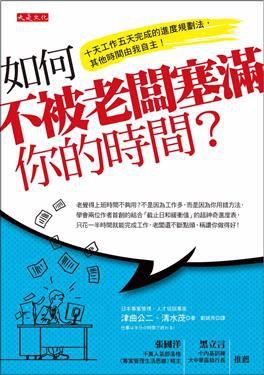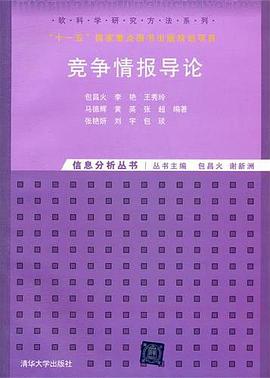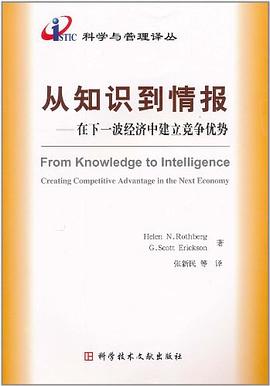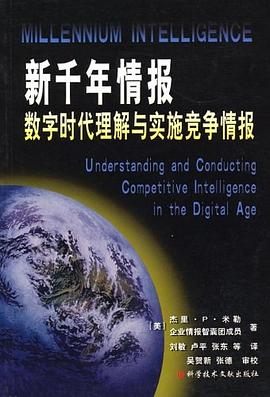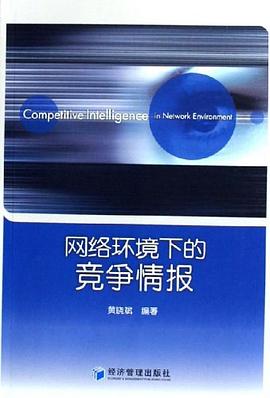

具體描述
Book Description
This book is all about those moments when we "know" something without knowing why. Here Malcolm Gladwell. one of the world's most original thinkers, explores the phenomenon of the "blink", showing how a snap judgement can be far more effective than a cautious decision. By trusting your instincts, he reveals, you'll never think about thinking in the same way again....
Amazon.com
Blink is about the first two seconds of looking--the decisive glance that knows in an instant. Gladwell, the best-selling author of The Tipping Point, campaigns for snap judgments and mind reading with a gift for translating research into splendid storytelling. Building his case with scenes from a marriage, heart attack triage, speed dating, choking on the golf course, selling cars, and military maneuvers, he persuades readers to think small and focus on the meaning of "thin slices" of behavior. The key is to rely on our "adaptive unconscious"--a 24/7 mental valet--that provides us with instant and sophisticated information to warn of danger, read a stranger, or react to a new idea.
Gladwell includes caveats about leaping to conclusions: marketers can manipulate our first impressions, high arousal moments make us "mind blind," focusing on the wrong cue leaves us vulnerable to "the Warren Harding Effect" (i.e., voting for a handsome but hapless president). In a provocative chapter that exposes the "dark side of blink," he illuminates the failure of rapid cognition in the tragic stakeout and murder of Amadou Diallo in the Bronx. He underlines studies about autism, facial reading and cardio uptick to urge training that enhances high-stakes decision-making. In this brilliant, cage-rattling book, one can only wish for a thicker slice of Gladwell's ideas about what Blink Camp might look like.
--Barbara Mackoff
Amazon.co.uk
For Blink, Malcolm Gladwell, author of the bestselling The Tipping Point explores the extraordinarily perceptive and deceptive power of the sub-conscious mind. Gladwell’s major claim is that decisions made very quickly can be every bit as good as a decision made cautiously and deliberately. What we are actually doing is what Gladwell calls ‘thin-slicing’. When we leap to a decision or have a hunch our unconscious is sifting through the situation in front of us looking for a pattern, throwing out the irrelevant information and zeroing in on what really matters. Our unconscious mind is so good at this that it often delivers a better answer than more deliberate and protracted ways of thinking. Much of this is utterly mysterious but some of the most astonishing and useful examples of thin-slicing can be learned.
Gladwell hopes to convince us that our snap judgements and first impressions can be educated and controlled so instead of merely praising the mysterious process of instinct and intuition he is interested in those moments when our instincts betray us, the situations where our powers of rapid cognition can go awry, where we fail to read the signs. Most disturbing of all is the degree to which culturally determined preconceptions and prejudices control us. Without reducing matters to racism and sexism Gladwell shows us that there are facts about people’s appearance—their size or shape or color or sex—that can trigger a very similar set of powerful associations which explains why utter mediocrities (such as U.S. President Warren Harding) can sometimes end up in positions of enormous responsibility; or why tall people earn substantially more than their shorter colleagues; or why car salesmen unconsciously charge prices according to race and gender.
Gladwell’s conversational prose style is concise, informative, accessible and entertaining. The stories, scientific findings and psychological tests are consistently surprising whether he is dealing with speed-dating, record promotions, police shoot-outs, the human face, or the reasons doctors get sued.
--Larry Brown
From Publishers Weekly
Starred Review. Best-selling author Gladwell (The Tipping Point) has a dazzling ability to find commonality in disparate fields of study. As he displays again in this entertaining and illuminating look at how we make snap judgments—about people's intentions, the authenticity of a work of art, even military strategy—he can parse for general readers the intricacies of fascinating but little-known fields like professional food tasting (why does Coke taste different from Pepsi?). Gladwell's conclusion, after studying how people make instant decisions in a wide range of fields from psychology to police work, is that we can make better instant judgments by training our mind and senses to focus on the most relevant facts—and that less input (as long as it's the right input) is better than more. Perhaps the most stunning example he gives of this counterintuitive truth is the most expensive war game ever conducted by the Pentagon, in which a wily marine officer, playing "a rogue military commander" in the Persian Gulf and unencumbered by hierarchy, bureaucracy and too much technology, humiliated American forces whose chiefs were bogged down in matrixes, systems for decision making and information overload. But if one sets aside Gladwell's dazzle, some questions and apparent inconsistencies emerge. If doctors are given an algorithm, or formula, in which only four facts are needed to determine if a patient is having a heart attack, is that really educating the doctor's decision-making ability—or is it taking the decision out of the doctor's hands altogether and handing it over to the algorithm? Still, each case study is satisfying, and Gladwell imparts his own evident pleasure in delving into a wide range of fields and seeking an underlying truth.
From Booklist
Gladwell writes about subtle yet crucial behavioral phenomena with lucidity and contagious enthusiasm. His first book, The Tipping Point (2000), became a surprise best-seller. Here he brilliantly illuminates an aspect of our mental lives that we utterly rely on yet rarely analyze, namely our ability to make snap decisions or quick judgments. Adept at bridging the gap between everyday experience and cutting-edge science, Gladwell maps the "adaptive unconscious," the facet of mind that enables us to determine things in the blink of an eye. He then cites many intriguing examples, such as art experts spontaneously recognizing forgeries; sports prodigies; and psychologist John Gottman's uncanny ability to divine the future of marriages by watching videos of couples in conversation. Such feats are based on a form of rapid cognition called "thin-slicing," during which our unconscious "draws conclusions based on very narrow 'slices' of experience." But there is a "dark side of blink," which Gladwell illuminates by analyzing the many ways in which our instincts can be thwarted, and by presenting fascinating, sometimes harrowing, accounts of skewed market research, surprising war-game results, and emergency-room diagnoses and police work gone tragically wrong. Unconscious knowledge is not the proverbial light bulb, he observes, but rather a flickering candle. Gladwell's groundbreaking explication of a key aspect of human nature is enlightening, provocative, and great fun to read.
Donna Seaman
Book Dimension
length: (cm)16.8 width:(cm)10.8
著者簡介
圖書目錄
讀後感
評分
評分
評分
評分
用戶評價
觀點有意思,整體較囉嗦
评分觀點有意思,整體較囉嗦
评分觀點有意思,整體較囉嗦
评分觀點有意思,整體較囉嗦
评分觀點有意思,整體較囉嗦
相關圖書
本站所有內容均為互聯網搜索引擎提供的公開搜索信息,本站不存儲任何數據與內容,任何內容與數據均與本站無關,如有需要請聯繫相關搜索引擎包括但不限於百度,google,bing,sogou 等
© 2025 book.quotespace.org All Rights Reserved. 小美書屋 版权所有






